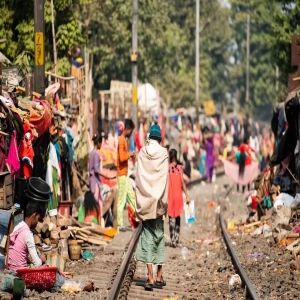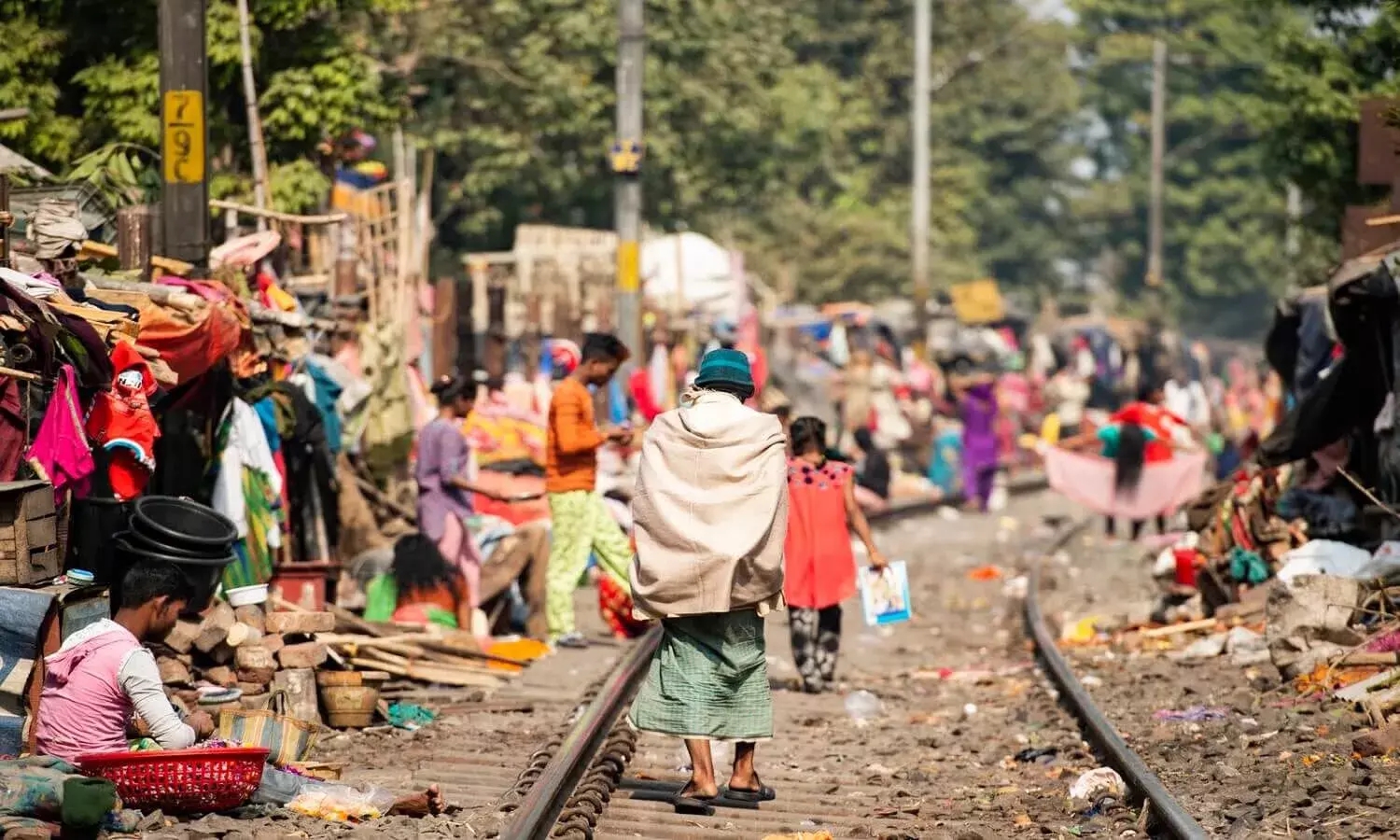
.png) M L Satyan
M L Satyan

Across 112 countries, 1.1 billion (110 crore) persons live in acute multidimensional poverty, according to the 2024 Global Multidimensional Poverty Index report. A total of 234 million (24.3 crore) persons are living below the poverty line in India, the highest in the world, according to a report released by the United Nations Development Programme and the Oxford Poverty and Human Development Initiative. Multidimensional poverty was measured by constructing a deprivation profile for each household and person, covering 10 indicators of health, education, and standard of living.
Here is another shocking news for India. In the 2024 Global Hunger Index, India ranks 105th out of the 127 countries with sufficient data to calculate 2024 GHI scores. With a score of 27.3 on the 2024 Global Hunger Index, India has a serious hunger level. What exactly is causing poverty and hunger in India? We need to find an answer from the proper perspective.
One of the sensitive issues during the regime of every government has been black money. As usual, most politicians (except a few principled and clean ones) talk nonsense about this issue wherever they go. They keep making promises after promises and continue to fool the common people. As long as there is a criminal-political-bureaucrat-richesse nexus in the country, none can solve the problem of black money.
Black will always remain black. In this situation, we need to ask a serious question - Is India economically backward? Finding the right answer to this question will require a deeper dig. We need to ask the Swiss banks. Funds parked by Indian individuals and firms in Swiss banks, including through India-based branches and other financial institutions, jumped to a 14-year-high of 3.83 billion Swiss francs (over Rs 30,500 crore) in 2021 as per the data from Switzerland's central bank. The second-best, Russia, has 4 times fewer deposits. The USA does not seem to be even there in the top five! Indian black money is safe in Swiss banks. This is the bitter reality today.
So, we need to make a pragmatic and realistic statement like this: "India is a sufficiently rich country with economically deprived people." If India is really a wealthy country, then where is the wealth? Who is holding most of the wealth? What is the extent of black money in India? How on earth are currency notes worth crores getting caught during every election? This is now happening in Maharashtra. Who owns such unaccounted black money?
A few years ago, Kotak Wealth Management conducted a study. The study estimated that India has about 65,000 super-rich households, with a total wealth of around 45 trillion rupees (45 thousand crore). This was expected to grow to more than 235 trillion rupees (2 lakh 35 thousand crore) in the future. Dishonest industrialists, scandalous politicians, and corrupt bureaucrats have deposited money that they have misappropriated in foreign banks in their illegal personal accounts.
In 2023, Indian visitors registered over 6,00,000 overnight stays in Swiss hotels, expected to rise to over 9,00,000 in five years. "Demand from India is growing exponentially," said Switzerland Tourism CEO Martin Nydegger. According to a study, more than 25,000 travel very frequently.
According to an official who tracks illegal money, it is obviously for the sake of black money. The saddest and most depressing part of the story is that our ill-gotten wealth has been stashed away abroad into secret bank accounts in some of the world's best-known tax havens. To that extent, the Indian economy has been stripped of its wealth. In fact, some conspiracy theorists believe that the tax havens are a conspiracy of the Western world against poor countries. By allowing the proliferation of tax havens in this century, the Western world explicitly encourages the movement of scarce capital from developing countries to the rich.
We are surprised to note that religious groups in India also compete with corporate infrastructure—i.e., Hindu temples adorned with gold and diamonds; Saudi Arabian-styled posh mosques; precious marble-structured Sikh and Jain temples; Western-styled single—and two-tier Christian churches with sky-rise towers (all multi-crore projects); and palatial and spacious ashrams/residences of religious leaders, etc.
Unequal distribution of wealth and unaccounted money are the real causes of poverty and the presence of economically backward and marginalised people in India. The ultimate culprits are the selfish business groups in the corporate sector, vision-less politicians, corrupt bureaucrats and fake religious leaders. Surprisingly, all these people network together to safeguard their illegal wealth.
Irrespective of any political party, the media reports daily on the illegal multi-crore transactions among politicians and bureaucrats. How does a simple MLA, MP, or government official earn crores of rupees within a short period? Criminal politicians and bureaucrats enjoy all types of comforts, even inside prisons. All this is possible because of the power of money, while the common people are taken for a ride.
Ironically, Government-initiated Acts/Laws such as the Fugitive Economic Offenders Act, 2018; the Central Goods and Services Tax Act, 2017; the Benami Transactions (Prohibition) Amendment Act, 2016; the Black Money (Undisclosed Foreign Income and Assets) and Imposition of Tax Act, 2015; and the Prevention of Money Laundering Act, 2002 remain mostly on paper.
Together with Rabindranath Tagore, let us pray: "This is my prayer to thee, my Lord… give me the strength never to disown the poor… and help me to build a country where the mind is without fear and the head is held high and where the people are not broken up into fragments of narrow domestic walls of disparities and discriminations." Besides prayer, every responsible citizen must strive for personal transformation and ensure the proper implementation of the existing Acts/Laws related to black money.